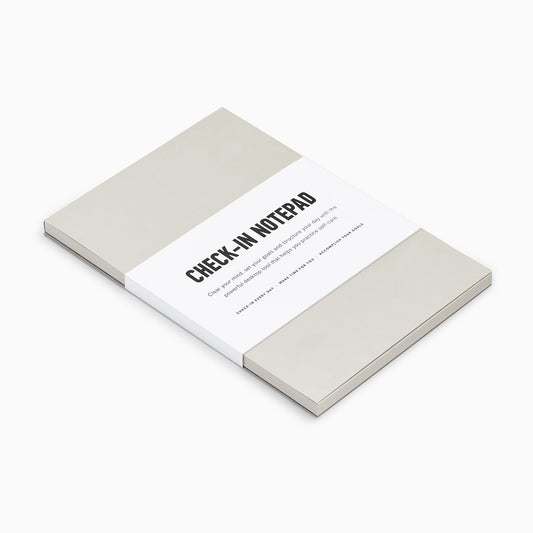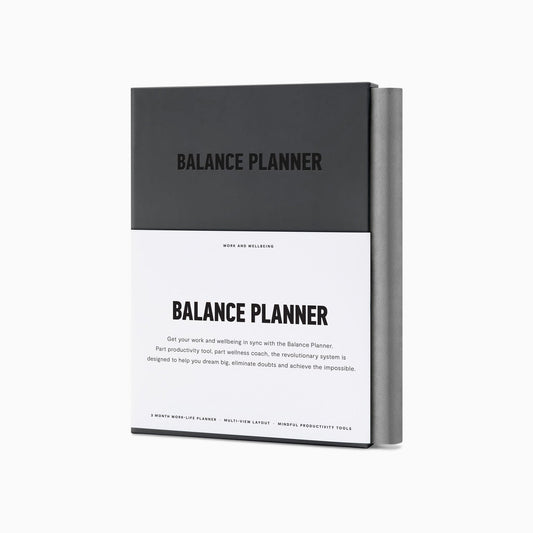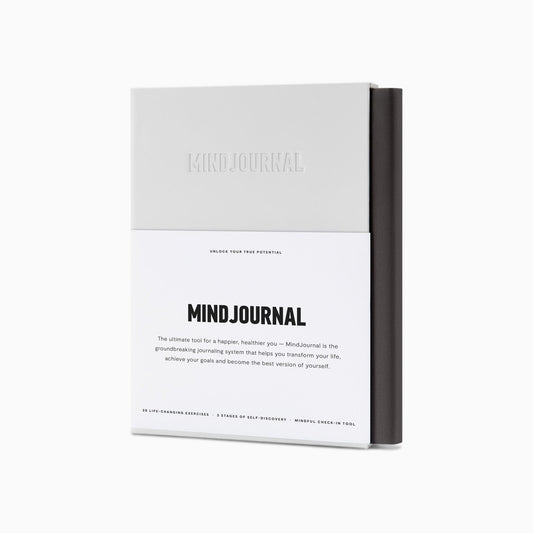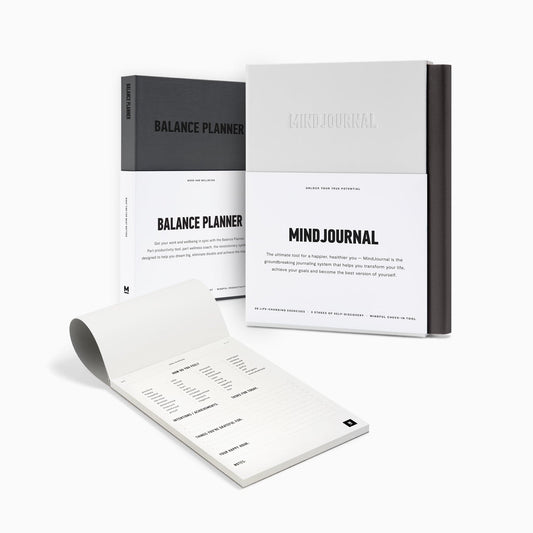Start your journey
Browse our bestsellers for a better you.
Frequently added:




by MindJournal - 11 min read

"Love is shown more in deeds than in words."
― St. Ignatius of Loyola
It can be complicated in relationships, though, can't it? Especially when we've all got our own ways of expressing ourselves. And when we don't quite meet the expectations of others, it can lead to crossed wires and misunderstandings.
We are making an effort. We're just talking in different languages.
This is where the work of Dr Gary Chapman can help. In 1992, he developed the concept for The Five Love Languages after noticing patterns in the couples he was counselling. His theory suggests there are five general ways that people express and experience love. And by understanding these 'love languages', we can improve our communication and strengthen our relationships.
But is Chapman's theory scientific?
"I don't consider it to be an evidence-based practice, but I do find it to be a very useful tool and use it in all of my work with couples," says Stefani Goerlich, a Detroit-based psychotherapist. "I have found that 8 times out of 10, whatever the issues are that my client-couples bring to the table, they are rooted in a fundamental misalignment in how each partner gives and receives love," she told Tracey Ann Duncan at Mic.
In fact, a 2000 study indicated the five love languages could be a more effective framework than other approaches to helping couples communicate.
But these love languages don't just apply to romantic couples. Chapman's theory works for friends, family and relationships of every kind. And that's why it's worth learning the lingo.
Although they have a common purpose, each of the five love languages works differently. So here’s how to start utilising them in all your varied relationships.
This language involves expressing affection and appreciation through words, compliments and verbal recognition. People who value this type of language appreciate it when their partner uses kind, positive and encouraging words to show them they care. Studies show that positive affirmations help build or restore self-competence, so there's good reason to suggest they'd work for your relationships too. Although there's no one way to use our words as a love language, there are some fail-safe ideas:
Research suggests that less than half the time (44%) we spend with our loved ones is 'quality' time. That's despite the fact that when asked, couples responded that quality time was considered the most important love language. But spending focused and uninterrupted time with the person you care about is essential for keeping any relationship healthy - romantic or otherwise. So set aside any distractions - turn down the television and put your phone away - then give the person you're with your undivided attention.
So what does quality time look like? It could be going for an outdoor walk, cooking your favourite meal or playing a game. Just find the things you both enjoy and do them together. Or making time to have those deeper conversations - what are your thoughts, feelings or dreams? Opening up and sharing helps you connect, support one another, and look forward to the same things, like that country you didn't know you both wanted to visit.
But quality time isn't just talking about what you're going to do - it's about the here and now. So establish some shared traditions like date nights or monthly catch-ups. Whatever you do, just be fully present in the moment. That's the best way to show them how much you value their time.
Thoughtful gifts don't have to cost the Earth to show someone you care. Think of them as tokens of affection or loving gestures showing them you care.
So what sort of things can you do? Obviously, make a point to celebrate those special milestones like birthdays and anniversaries together. But also try to surprise them when they least expect it. Write a handwritten note or pick up their favourite snack and focus on the sentiment behind the gift. Remember when you ate noodles together at 1 in the morning after your second date? Whip up some ramen to remind them it was a year ago today.
People with this love language will appreciate the effort and thought you put into these small gestures. Just consider their needs and interests or the journey you've shared, and you can't go wrong. It's all about the fact you're thinking of them, not the price tag.
Actions speak louder than words for those who appreciate this love language the most. And these individuals feel most loved when the people they care about do things that make their lives a little easier or more enjoyable.
So what can you do? Well, this all depends on who you're trying to help. But here are some tried-and-tested acts of service to get you thinking:
A small amount of physical attention can go a long way. And people who have this love language feel most loved when they're receiving your touch. It's important to say that with this love language, you need to understand the person's specific needs, boundaries, and what they are comfortable with.
Something as simple as holding hands or touching someone's arm during a conversation can make them feel comforted and reassured. These aren't just romantic gestures; and can be especially important for older or more isolated friends or relatives who may not get a lot of physical attention in their lives.
On a more intimate level, a cuddle before you drift off to sleep or a kiss first thing when you wake up, can start and end your day on a good note.
So do we need to show our loved ones all five languages to make a relationship work?
"In a balanced relationship, we're hitting all of these things," says Moraya Seeger DeGeare, licensed marriage and family therapist, to Refinery29. But "...some things matter a lot less to people," she adds.
Wondering what your love language is? Try taking Dr Chapman's love language quiz to find out. It won't just help you connect to the ones you care about; it'll allow you to understand yourself a bit better too. As we've mentioned before, practising self-love is just as important as anything else. So start translating your own needs as well as the people you love, and watch your relationships flourish.
Sure, love's about more than words. But it doesn't hurt to learn the language.
